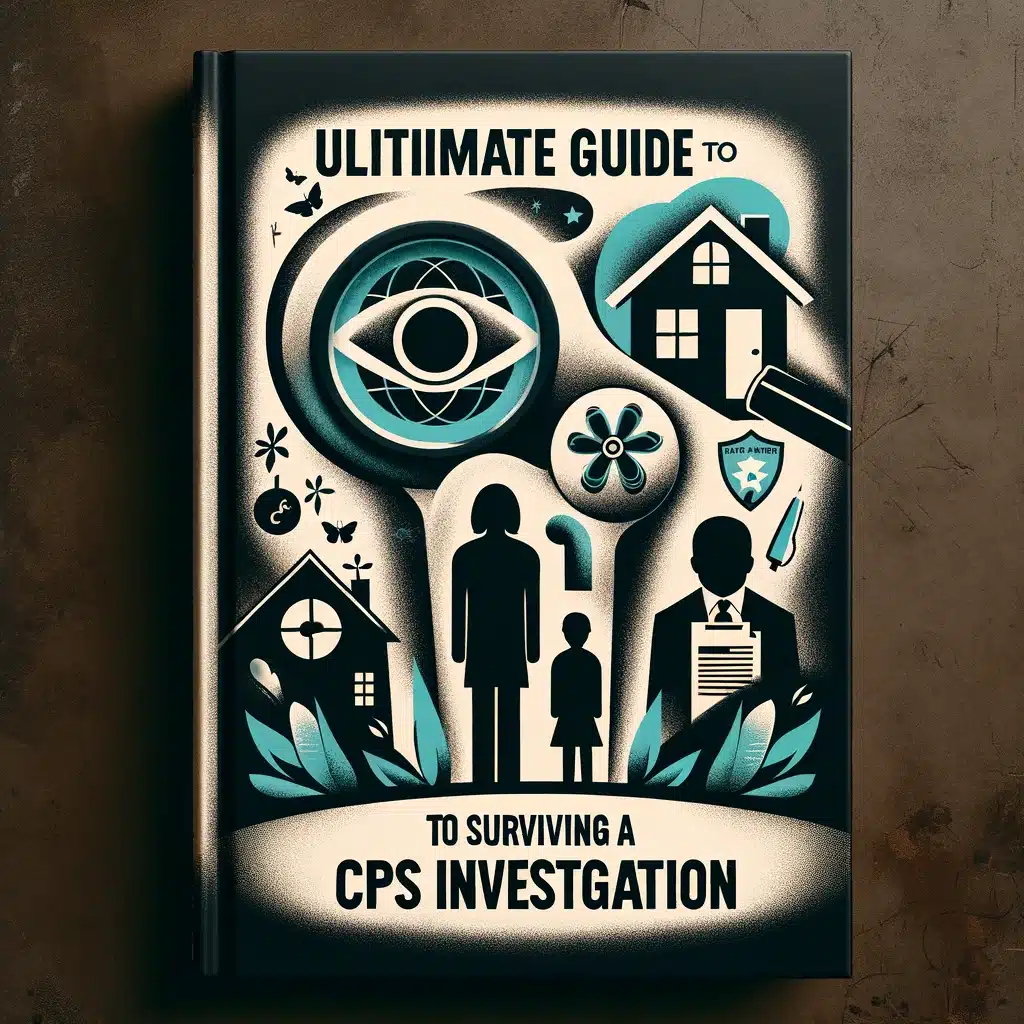
Navigating a CPS (Child Protective Services) investigation in Texas takes you on a journey through complexities and legal nuances. Explore this guide, “A CPS Investigation: An In-depth Examination,” now. It offers a detailed exploration. Serving as a crucial resource for families embroiled in this process.
A CPS Investigation: An In-depth Examination
Imagine you’re planning a peaceful family picnic, and suddenly, you’re caught in an unexpected storm. That’s a bit like facing a CPS (Child Protective Services) investigation in Texas – unexpected and unsettling. This guide is your umbrella in that storm, providing shelter and understanding in a whirlwind of legalities.
Ever wondered what rights parents have during these investigations, or the role of a lawyer in this complex dance? We’ve got the answers.
Keep reading
We’ll navigate these choppy waters together, turning daunting legal jargon into a language as comforting as your grandma’s apple pie. Our aim? To make you feel more at home with the subject of CPS investigations.

Rights and Responsibilities of Parents During CPS Investigations
Parents must understand their rights in CPS investigations. You hold the right to understand the allegations and make your voice heard. Proper communication with CPS is essential. If you disagree with the findings, understanding the proper channels for dispute is key. Parents also have responsibilities, like providing necessary information and cooperating with CPS. Awareness and preparedness are your best tools in these situations.
Rights of Parents |
Responsibilities of Parents |
|
1. Right to be informed about the allegations. |
1. Responsibility to provide necessary information. |
|
2. Right to communicate and seek clarification from CPS. |
2. Responsibility to cooperate with CPS’s requests. |
|
3. Right to disagree with CPS findings. |
3. Responsibility to follow legal channels for disputes. |
|
4. Right to have legal representation. |
4. Responsibility to engage respectfully with CPS. |
|
5. Right to appeal CPS decisions. |
5. Responsibility to participate in interviews/meetings. |
Role of Legal Counsel in CPS Cases
Legal counsel plays a critical role. A family law attorney can provide guidance and defend your rights. Their presence is particularly vital in court proceedings. Texas law recognizes the value of legal representation in CPS cases. An attorney can navigate the legal system, advocating for the best outcome for your family.

Impact of CPS Investigations on the Child
The child’s welfare is central in CPS investigations. Texas CPS conducts interviews with utmost sensitivity. They aim to protect the child’s psychological and emotional health. Counseling and support are often necessary for the child, both during and after the process. CPS workers in Texas are trained to prioritize the child’s well-being in every interaction.
CPS Investigation Procedures and Protocols
CPS investigations in Texas follow a structured process. It begins with a report and an initial assessment. CPS evaluates the urgency and takes steps to ensure the child’s safety. Knowing these procedures can help parents understand the investigation’s flow. Timelines for each stage are crucial and should be monitored closely.
Alternative Dispute Resolution in CPS Cases
Texas encourages alternative dispute resolution in CPS cases. Mediation and family group conferencing are often preferable to court. These methods aim for collaborative solutions, focusing on the child’s best interests. Families may find these approaches less confrontational and more effective.
Long-term Outcomes and Support After CPS Involvement
Post-investigation, the focus shifts to the family’s long-term well-being. Texas offers counseling, reunification programs, and other support services. These are designed to promote safety, stability, and healing. Accessing these resources is vital for families working to rebuild and recover.
Cultural Competency and Bias in CPS Investigations
Cultural sensitivity is crucial in Texas CPS operations. Workers receive training in cultural competency to ensure equitable treatment. This approach helps to mitigate biases and provide fair treatment to all families, regardless of their background.

Confidentiality and Privacy in CPS Cases
Confidentiality is a critical aspect of CPS investigations in Texas. Laws protect the privacy of the family and child. Information is shared strictly according to legal guidelines. Understanding these privacy protections offers reassurance to families during investigations.
Preventative Measures and Community Resources
Prevention is a key objective in Texas. The state provides resources aimed at preventing child abuse and neglect. Educational programs and early intervention services are available. These resources are invaluable for families seeking to avoid CPS involvement.
Appealing CPS Decisions
Families have the right to appeal CPS decisions in Texas. The appeal process involves specific legal steps and timelines. An experienced attorney can be instrumental in this process. They ensure that your rights are upheld and that the appeal is handled correctly.
Detailed Insights into CPS Investigation Procedures
The initial phase of a CPS investigation involves gathering information. CPS workers assess the immediate safety of the child. They then gather evidence, interview witnesses, and consult experts if necessary. Understanding this phase can help parents prepare for what to expect.
Handling Interviews and Interactions with CPS
During a CPS investigation, interviews are a critical component. Parents should approach these interactions with care. It’s advisable to have legal counsel present during interviews. Being honest yet cautious is key in these discussions.
Legal Implications of CPS Findings
The findings of a CPS investigation can have significant legal implications. If neglect or abuse is substantiated, it may lead to court proceedings. Understanding the potential outcomes is important for parents. This knowledge helps in making informed decisions throughout the process.
Collaborating with CPS for a Positive Outcome
Collaboration with CPS can lead to better outcomes. It involves working together to ensure the child’s safety. Parents should engage proactively with CPS, showing a commitment to resolving the issues.
Navigating the Emotional Challenges of a CPS Case
CPS investigations can be emotionally taxing. Parents should seek support to manage stress and anxiety. Support groups, counseling, and community resources can provide much-needed emotional relief.
Ensuring the Child’s Voice is Heard
In CPS cases, ensuring the child’s voice is heard is vital. Texas law emphasizes the importance of considering the child’s perspective. CPS workers are trained to listen to children’s concerns and needs. This approach ensures that decisions are made in the child’s best interests.
The Role of Schools and Healthcare Providers in CPS Investigations
Schools and healthcare providers often play a role in CPS investigations. They are mandated reporters in Texas. Understanding their role can help parents interact effectively with these entities during an investigation.

In Summary
A CPS investigation in Texas is a multifaceted and challenging process. This guide aims to provide a comprehensive understanding, equipping families with the knowledge needed to navigate these situations. Being informed, seeking legal counsel, and understanding the emotional impact are crucial in achieving the best possible outcome.
So, we’ve journeyed through the maze of a CPS investigation, much like a detective solving a mystery. Think of this guide as your trusty magnifying glass, revealing the hidden clues of legal rights, emotional impacts, and the all-important role of legal counsel. Remember, facing a CPS case in Texas doesn’t have to feel like a solo trek in a dark forest. With the right knowledge and support, you can navigate this path like a seasoned hiker.
The short of it?
You’re not alone, and understanding these investigations can turn a daunting process into a manageable journey. Keep this guide handy, and you’ll be ready to face the challenge with confidence and a dash of savoir-faire!

Other Related Articles:
- What to Do When CPS Asks for a Drug Test in Texas
- CPS and how The Law Office of Bryan Fagan, PLLC, can help
- Take control of your child’s CPS case by following these tips
- How to stand up for yourself during a Texas CPS case
- How to prevent a second CPS investigation after your first concludes
- Family Law Cases in Texas: The final stages of a CPS case
- When can CPS remove your child from your home in Texas, and what can you do about it?
- What to do if you no longer like your CPS service plan?
- In what circumstances could your child end up living with your relative during a CPS case?
- What can a CPS investigation into your family mean now and in the future?
Frequently Asked Questions
What is the process of CPS investigation in Texas?
The process begins with a report of suspected abuse or neglect. CPS then assesses the situation and may conduct interviews and home visits to determine if the child is at risk.
What happens when CPS is called on you in Texas?
If CPS receives a report about your family, they will investigate the claims. This could involve interviews, home visits, and speaking with the child, depending on the situation.
Can you deny CPS entry in Texas?
Yes, you can deny CPS entry into your home unless they have a court order. However, denying access may lead CPS to take further legal steps to ensure the child’s safety.
Can CPS make you take a drug test in Texas?
CPS can request a drug test if they believe substance abuse is a concern. Refusal to take the test could be considered during the investigation process.
Bryan Fagan, a native of Atascocita, Texas, is a dedicated family law attorney inspired by John Grisham’s “The Pelican Brief.” He is the first lawyer in his family, which includes two adopted brothers. Bryan’s commitment to family is personal and professional; he cared for his grandmother with Alzheimer’s while completing his degree and attended the South Texas College of Law at night.
Married with three children, Bryan’s personal experiences enrich his understanding of family dynamics, which is central to his legal practice. He specializes in family law, offering innovative and efficient legal services. A certified member of the College of the State Bar of Texas, Bryan is part of an elite group of legal professionals committed to ongoing education and high-level expertise.
His legal practice covers divorce, custody disputes, property disputes, adoption, paternity, and mediation. Bryan is also experienced in drafting marital property agreements. He leads a team dedicated to complex family law cases and protecting families from false CPS allegations.
Based in Houston, Bryan is active in the Houston Family Law Sector of the Houston Bar Association and various family law groups in Texas. His deep understanding of family values and his professional dedication make him a compassionate advocate for families navigating Texas family law.




